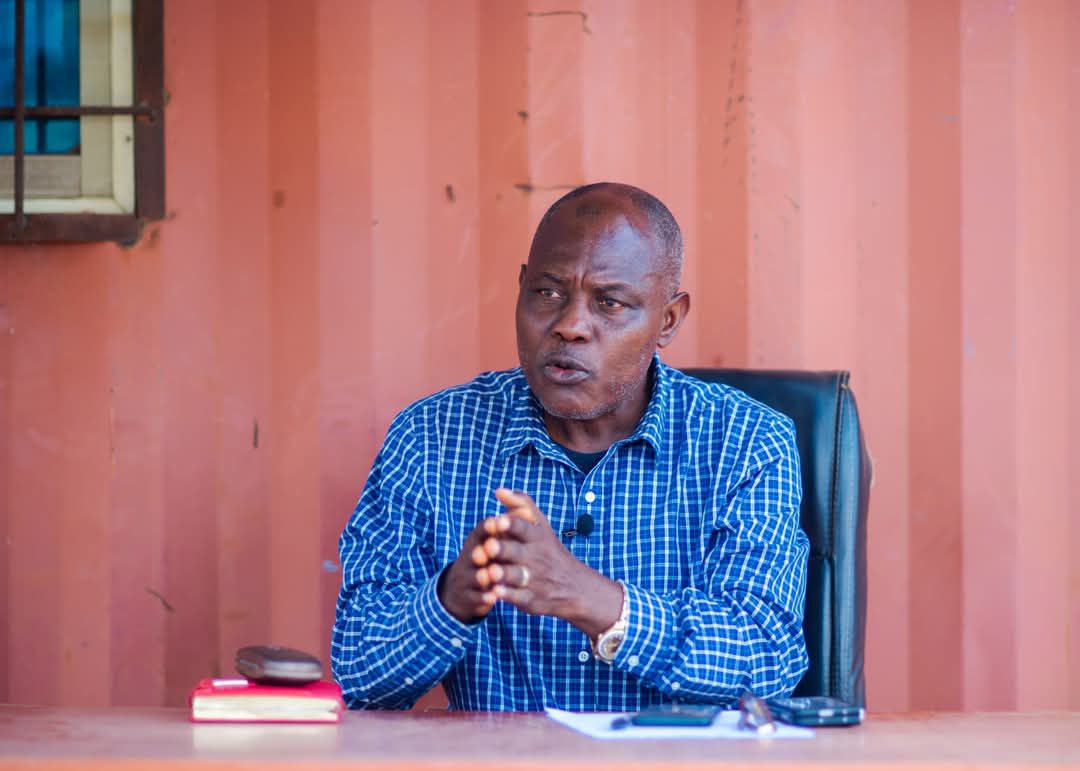Dr. Samuel Onyishi Urges Entrepreneurial Overhaul in Nigerian Universities to Drive National Development
In a compelling address that calls for a radical shift in the focus and structure of Nigerian higher education, Dr. Samuel Maduka Onyishi, Founder and Chancellor of Maduka University, has urged universities across the country to embrace targeted entrepreneurial education. His passionate advocacy was delivered during the second Academic Lecture of the Faculty of Health Sciences and Technology at the University of Nigeria, Enugu Campus. The presentation, titled “Entrepreneurship for Human Development and Economic Progression: A Call on Nigerian Universities,” paints a vivid picture of how institutions can pivot from being mere knowledge centers to engines of innovation and economic transformation.
Dr. Onyishi’s message could not have come at a more crucial time. Nigeria, Africa’s most populous nation, is grappling with soaring unemployment rates, a rapidly changing global economy, and a youth demographic bulge with limited economic opportunities. The traditional ivory tower model of higher education, which prioritizes theoretical knowledge and research for its own sake, is increasingly ill-equipped to meet the real needs of Nigerian society.
According to Dr. Onyishi, universities must become dynamic catalysts for human capital development and economic progression by shifting their focus from producing job seekers to nurturing job creators. “Rising global competition means our universities are under increasing pressure to contribute directly to economic development — hence the need for an entrepreneurial shift,” he asserted.
He emphasized that today’s universities no longer enjoy a monopoly on intellectual output. Knowledge is now decentralized and more accessible than ever, and with the advent of artificial intelligence and other technological advancements, traditional educational paradigms must adapt or become obsolete. To this end, Dr. Onyishi proposed the adoption of a structured and targeted approach to entrepreneurial education.
YOU MAY READ
African Development Bank to Mobilise $2.2 Billion for Special Agro-Processing Zones in 28 Nigerian States
This model, he noted, must go beyond surface-level entrepreneurship courses and delve deep into the practical, technical, and emotional skills needed to succeed in today’s volatile economy. He laid out a comprehensive blueprint that integrates multiple disciplines into what he called “targeted entrepreneurial education.” This includes entrepreneurship education, financial literacy, vocational and skill acquisition training, leadership development, time management, legal education, ICT literacy, life skills and healthy living, business intelligence, family planning, and cooperative education.
The proposal underscores the importance of interdisciplinary learning, where education is not confined to classrooms but is expanded through practical experience, partnerships, and exposure to real-world problems. He called for the establishment of incubation centers within universities, which can serve as hubs for innovation, mentoring, and business development. These centers, in his view, would help students hone their entrepreneurial skills and transform theoretical knowledge into viable business ventures.
“School farms and agricultural business training programmes would go a long way in ensuring food security. We must all produce what we eat. This is the foundation of self-sufficiency, which is a key index of economic progression,” Dr. Onyishi emphasized. His remarks point to the vital role agriculture can play not just in food production but as a gateway for youth engagement, enterprise development, and rural economic revitalization.
He further advocated for university-industry collaboration, particularly in the context of emerging technological disruptions. “Artificial intelligence is already displacing workers. Our universities must begin to align with new work patterns to produce graduates who are relevant in a rapidly changing, AI-driven world,” he warned. In this light, he emphasized the importance of integrating AI, data analytics, machine learning, and other frontier technologies into university curricula.
Another key area of focus in Dr. Onyishi’s presentation was medical entrepreneurship. He described it as one of the most promising frontiers for economic and human development in Nigeria. Despite the country having more than 48 universities offering medical education and over 400 nursing schools, Nigeria still spends a staggering $2.39 billion annually on medical tourism. In addition, the nation imports most of its medical supplies and consumables, which could otherwise be manufactured locally with the right investments and expertise.
He noted that this situation represents a paradox and a huge missed opportunity. “These figures underscore the untapped potential in the medical entrepreneurship space,” he stated. Unlocking this potential, according to him, requires a combination of professional integrity, long-term investment, equity models such as sweat equity and consultancy royalties, and robust corporate governance frameworks.
Dr. Onyishi also called attention to the importance of instilling values and ethics in entrepreneurship education. As he put it, “What we need are not just entrepreneurs, but ethical entrepreneurs who build with integrity, create with conscience, and scale with responsibility.”
His lecture served as both a wake-up call and a roadmap for Nigerian universities. With 63 federal, 63 state, and 149 private universities, and thousands of professors and researchers, the country possesses enormous intellectual resources. However, these resources have yet to be fully mobilized toward national development. “Our number of professors grows daily, yet our institutions have not catalyzed rapid national development. Perhaps we are still trapped in the tradition of the ivory tower. It’s time to reimagine and reconstruct the university of the future — and the way forward is entrepreneurial,” he said.
YOU MAY READ
The Anambra black and blue Rail Master Plan: A Vision for Sustainable Development and Connectivity
Dr. Onyishi’s call for targeted entrepreneurial education is not just theoretical. Through Maduka University, he has already begun implementing many of the ideas he advocates. The institution has built a strong foundation in entrepreneurship and practical learning, and has formed partnerships with industry leaders and international organizations to provide students with hands-on experience and global exposure.
Moreover, Maduka University has adopted policies that encourage student-led startups, social enterprises, and innovation hubs, and is in the process of launching sector-specific incubators, including one focused on medical innovation and another on agri-tech. These initiatives exemplify the type of institutional reforms that other Nigerian universities can emulate.
Dr. Onyishi also emphasized the need for a national policy framework that supports entrepreneurial education at all levels. He called on the Federal Ministry of Education, the National Universities Commission (NUC), and other stakeholders to mainstream entrepreneurship education in university accreditation standards. He further recommended performance-based funding for universities based on their contribution to entrepreneurship, innovation, and graduate employability.
A particularly striking aspect of Dr. Onyishi’s vision is the emphasis on cooperative education. He urged universities to encourage students to form cooperative societies, investment clubs, and peer-to-peer mentoring groups. These structures not only foster collaboration and financial discipline but also serve as platforms for scaling microenterprises and collective investments.
In terms of implementation, he stressed the role of internships and experiential learning, urging universities to forge partnerships with private companies, government agencies, and non-profits to create robust internship programmes. These real-world engagements, he said, would help bridge the gap between classroom learning and market realities.
He concluded his lecture with a challenge to Nigerian academics and policymakers: “We must act now. The world will not wait for us to catch up. Our young people are brimming with potential, creativity, and resilience. What they need is a university system that believes in their dreams, nurtures their ideas, and gives them the tools to build the future.”
Dr. Onyishi’s lecture marks a defining moment in the ongoing debate about the role of higher education in Nigeria’s socio-economic development. By advocating for a targeted and integrated approach to entrepreneurship education, he provides a bold and actionable roadmap for transforming Nigerian universities into engines of economic growth, innovation, and human development. The message is clear: the future of Nigeria lies not just in its oil reserves or mineral resources, but in the creativity, enterprise, and leadership of its young people — and universities must rise to the task of shaping that future.





